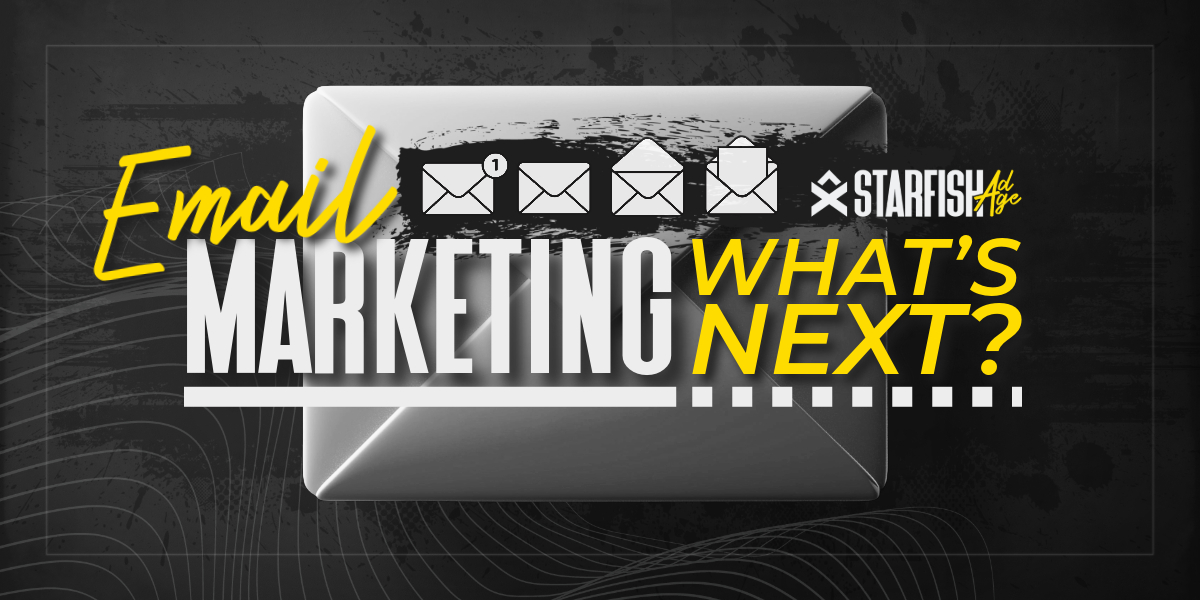
What Is The Future Of Email Marketing
Email marketing has been a powerful tool for businesses for decades. Choosing the right email marketing service can optimize strategies and gauge campaign performance effectively.
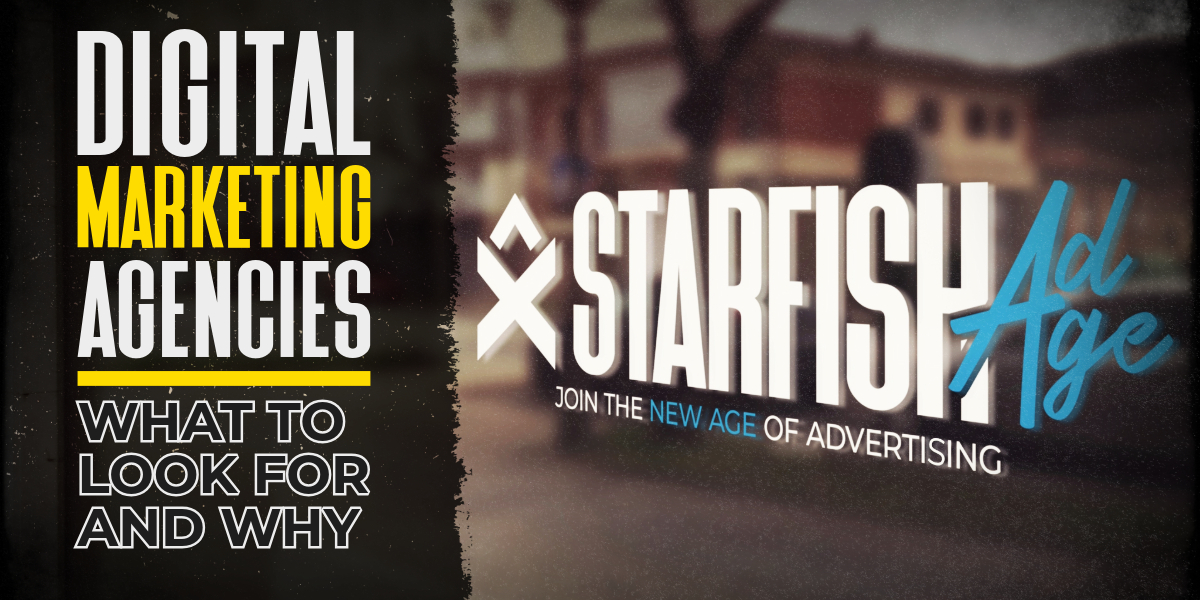
Digital marketing uses online platforms and tools to promote and grow your business. It encompasses various activities, including social media marketing, email marketing, search engine optimization (SEO), pay-per-click (PPC), and advertising services. Unlike traditional marketing, digital marketing allows businesses to reach a global audience and engage with customers in real-time. This is particularly beneficial for small businesses with limited resources that want to maximize their reach and impact.
Whether through a well-optimized website, engaging social media content, or targeted email campaigns, digital marketing provides the tools and strategies needed to compete with larger companies. It’s about being where your customers are and delivering the right message at the right time.
The costs of hiring a digital marketing agency for small businesses can vary depending on the services required, the agency’s expertise, and the project scope. Some agencies offer flexible pricing models like hourly rates, monthly retainers, or project-based fees. It’s important for businesses to discuss their budget and needs with the agency to find a suitable arrangement.
The success of digital marketing campaigns can be measured using various metrics, such as website traffic, conversion rates, click-through rates, and ROI. Tools like Google Analytics and social media insights provide valuable data for tracking and analyzing performance. Reviewing these metrics helps businesses understand what’s working and make data-driven decisions to optimize their campaigns.
Small businesses’ most important digital marketing services include SEO, PPC advertising, social media marketing, content marketing, and email marketing. These services help companies increase online visibility, attract and engage customers, and drive sales. The services required may vary based on the business’s goals, industry, and target audience.
Improving a small business’s online presence involves optimizing the website for search engines, creating valuable and engaging content, leveraging social media platforms, and using paid advertising to reach a wider audience. Regularly updating and optimizing the website, engaging with the audience on social media, and investing in SEO and PPC can help enhance online visibility and attract more customers.
Choosing the right digital marketing agency involves evaluating their experience and expertise, reviewing client testimonials and case studies, understanding their approach and strategies, and assessing their communication and support. Finding an agency that aligns with your business goals and can deliver the desired results is important. Discussing your needs and expectations with the agency can help ensure a successful partnership.

Small businesses need digital marketing to stay competitive and relevant in today’s fast-paced market. With most consumers turning to the internet to research products and services, having a solid online presence is no longer optional—it’s essential. Digital marketing enables small businesses to reach a broader audience, build brand awareness, bring in qualified leads, and drive conversions without the hefty price tag of traditional advertising methods.
Digital marketing also allows for more precise targeting and personalization. By using data and analytics, small businesses can understand their customers’ behavior and preferences, allowing them to tailor their marketing efforts for maximum impact. This means higher engagement rates, better customer satisfaction, and increased loyalty. In short, digital marketing is a powerful tool that can help small businesses thrive in a competitive landscape.

These agencies offer digital marketing services, from SEO and PPC to content marketing and social media management services. Small businesses can leverage the expertise and resources needed to create effective marketing strategies and campaigns by partnering with a digital marketing agency.
Digital marketing agencies provide customized strategies tailored to small businesses’ unique needs and goals. They help companies identify their target audience, craft compelling messages, and choose the channels to reach customers. Moreover, many digital marketing agencies handle the technical aspects of digital marketing, such as website development, analytics, and ad management, allowing small business owners to focus on running their businesses. With a proven track record, these agencies ensure that small businesses get the most out of their marketing efforts.
Digital marketing services encompass a wide range of activities promoting businesses online. These online marketing services include SEO, PPC, social media marketing, content marketing, email marketing, and web design. Each digital marketing service also plays a specific role in helping businesses increase their online visibility, attract and engage customers, and drive sales.
For small businesses, digital marketing services offer an efficient way to reach a larger audience without the high costs associated with traditional marketing methods. By utilizing these services, companies can create targeted marketing campaigns that resonate with their audience and achieve their goals. Whether improving search engine rankings, running effective ad campaigns, establishing brand identity, or creating engaging content, digital marketing services provide the tools and strategies needed for success.

SEO is optimizing a website to rank higher in search engine results pages (SERPs). This involves various techniques, such as keyword research, on-page optimization, and link building, to improve a site’s visibility and attract organic traffic. SEO is a cost-effective way for small businesses to increase online visibility and attract potential customers actively searching for their products or services.
Implementing SEO best practices can help small businesses improve search engine rankings and drive more organic website traffic. This increases brand awareness and boosts credibility and trust among consumers. SEO helps businesses stay competitive by ensuring their websites are optimized for search engines and users, providing a better overall experience.
PPC advertising involves paying for ads that appear on search engines and other platforms. Businesses bid on keywords relevant to their products or services, displaying their ads to users searching for those terms. This model ensures that companies only pay when someone clicks on their ad, making it a cost-effective way to drive targeted traffic to their website and bring in qualified leads.
For small businesses, PPC is an excellent way to gain immediate visibility and attract potential customers. Platforms like Google Ads and Bing Ads allow companies to create highly targeted campaigns that reach the right audience at the right time. With the ability to control budgets, set specific goals, and measure performance, PPC advertising offers a flexible and results-driven approach to digital marketing.

Social media marketing involves using platforms like Facebook, Instagram, Twitter, LinkedIn, and Pinterest to promote a business and engage with its audience. This can include creating and sharing content, running ads, and interacting with followers. A social media marketing strategy is essential for small businesses as it helps build brand awareness, foster community interaction, and drive traffic to their website.
Increasing a business’s digital presence on social media helps build brand loyalty and provides valuable insights into customer preferences and behavior. With the right social media strategy, companies can create engaging content that resonates with their audience and drives conversions.
Content marketing involves creating and sharing valuable content to attract and engage a target audience. This can include blog posts, videos, infographics, ebooks, and more. Content marketing aims to provide helpful information that helps solve problems, answer questions, and build trust with potential customers.
For small businesses, content marketing is a powerful way to establish authority and credibility in their industry. By consistently producing high-quality content, companies can attract and retain a loyal audience, drive organic traffic to their website, and generate leads. Moreover, content marketing complements other digital marketing efforts, such as SEO and social media, by providing valuable content that can be shared and promoted across various channels.

Email marketing involves sending targeted messages to a list of subscribers to promote products, services, or content. This can include newsletters, promotional offers, and personalized recommendations. Email marketing is an effective way for small businesses to nurture customer relationships and drive repeat business.
By building and maintaining an email list, small businesses can communicate directly with their audience and deliver relevant content, encouraging engagement and conversions. Automated email campaigns can also save time and ensure the right messages are sent to the right people at the right time. With a well-executed email marketing strategy, businesses can increase customer loyalty and boost sales.
Web design and development involve creating and maintaining a visually appealing, user-friendly website optimized for search engines. This includes designing the layout, coding the site, and ensuring responsiveness across different devices. For small businesses, having a professional website is crucial for establishing an online presence and attracting potential customers.
A well-designed website enhances the user experience, improves search engine rankings, and drives conversions. By investing in web design and development, small businesses can create a strong foundation for their digital marketing efforts and provide a seamless experience for their visitors.
Analytics and reporting involve tracking and analyzing the performance of digital marketing campaigns to measure their effectiveness and identify areas for improvement. This can include monitoring website traffic, conversion rates, and social media engagement. For small businesses, having access to detailed analytics is essential for making data-driven decisions and optimizing marketing efforts.
Businesses can gain valuable insights into their audience’s behavior and preferences using tools like Google Analytics. This information can be used to refine marketing strategies, allocate resources more effectively, and achieve better results. Regular reporting also helps businesses stay accountable and track their progress toward their goals. An excellent digital marketing agency should provide adequate reporting.

Hiring a digital marketing agency brings expertise and experience. These agencies deeply understand digital marketing strategies and know what works best for different industries. Small businesses can tap into this knowledge by partnering with a digital growth agency and benefiting from proven techniques that drive results.
Digital marketing agencies also stay current with the latest industry trends and changes. This means they can adapt quickly and implement new strategies that keep businesses ahead of the competition. With their experience and expertise, top digital marketing agencies can help small businesses navigate the complexities of digital marketing and achieve their goals more efficiently.
Working with a digital marketing agency can be cost-effective for small businesses. Instead of hiring an expensive and time-consuming in-house team, companies can outsource their marketing needs to an agency. This allows them to access a wide range of services and expertise without the overhead costs associated with full-time employees.
Agencies also offer flexible pricing models, allowing businesses to choose the services that best fit their budgets and needs. By optimizing marketing campaigns and focusing on high-impact strategies, agencies can help small enterprises achieve a higher return on investment (ROI) and maximize their marketing budget.
Digital marketing agencies can access the latest tools and technologies to enhance marketing efforts and drive better results. These tools can include advanced analytics platforms, social media management tools, SEO software, and more. By leveraging these technologies, agencies can streamline processes, improve efficiency, and gain deeper insights into marketing campaign performance.
Gaining access to these tools can be a game-changer for small businesses. It allows them to compete with larger companies and stay ahead of the curve. Agencies provide the tools and expertise to use them effectively, ensuring businesses get the most out of their marketing efforts.
Partnering with a digital marketing company or agency can save small businesses significant time. Marketing requires constant attention and effort, from planning and execution to monitoring and optimization. Outsourcing these tasks to an agency allows business owners to focus on running their operations and serving customers.
Agencies handle all aspects of digital marketing, from strategy development to community management to campaign management. They hold the day-to-day tasks, allowing businesses to concentrate on their core activities. This saves time and ensures that marketing efforts are carried out consistently and professionally.

Digital marketing agencies are focused on delivering results and improving ROI for their clients. They use data-driven strategies to optimize campaigns and ensure marketing efforts align with business goals. By continuously monitoring performance and making adjustments, agencies can maximize the impact of marketing activities and achieve better outcomes.
For small businesses, this means getting more value from their marketing budget. Agencies work to identify the most effective channels and tactics, ensuring that resources are allocated efficiently. With their expertise and commitment to results, digital marketing agencies can give comprehensive services that help small businesses achieve a higher ROI and drive growth.

Before choosing a digital marketing agency, small businesses need to identify their needs and goals. This involves understanding what they want to achieve with their marketing efforts, whether it’s increasing brand awareness, driving website traffic, or generating leads. Having clear objectives helps businesses find the best digital marketing agency that aligns with their vision and can deliver the desired results.
Businesses should also consider their budget and the specific services they require. Different agencies specialize in various aspects of digital marketing, so finding one that offers all the services and matches your needs is essential. You can narrow down your options and make an informed decision by identifying your goals and requirements.

Evaluating a digital marketing agency’s experience and expertise is critical. Look for agencies with a proven track record of success in your industry or similar businesses. This indicates that they understand your unique business challenges and opportunities and can develop effective strategies tailored to your needs.
Reviewing case studies and client testimonials can provide valuable insights into an agency’s capabilities and performance. Ask for examples of past work and results they have achieved for other clients. This will give you a better understanding of their approach and the impact they can have on your business.
Client testimonials and case studies are valuable resources for assessing the quality and reliability of a digital marketing agency. Testimonials provide firsthand accounts of clients’ experiences and satisfaction with the agency’s services. Positive feedback from happy clients can build trust and confidence in the agency’s abilities.
Case studies examine how the agency has helped other businesses achieve their goals. They showcase specific strategies, tactics, and results, demonstrating the agency’s expertise and effectiveness. Reviewing case studies can give you a better idea of what to expect and how the agency can help your business succeed.
Understanding an agency’s approach and strategies is important before making a decision. Ask about their process for developing and executing digital marketing campaigns. Do they use data-driven methods? How do they measure success? What tools and technologies do they use?
Understanding the agency’s approach helps ensure its strategies align with your business goals and expectations. It also gives you insight into how they work and what you can expect from the partnership. Clear communication and a shared vision are key to a successful collaboration.
Effective communication and support are essential when working with a digital marketing agency. You want a responsive, transparent, and proactive agency in their communication. This ensures that you are kept informed about the progress of your campaigns and any changes or updates to your digital marketing strategies.
Assessing the level of support an agency provides is also important. Will you have a dedicated account manager? How often will you receive reports and updates? What is their process for addressing any issues or concerns? Choosing an agency prioritizing communication and support will help ensure a smooth and successful partnership.

SEO (Search Engine Optimization) is a critical component of digital marketing for small businesses. It involves optimizing a website to rank higher in search engine results, making it easier for potential customers to find your business online. Search engine optimization includes techniques such as keyword research, on-page optimization, link building, and technical SEO.
Investing in SEO can increase visibility, organic traffic, and conversion rates for small businesses. By appearing on the first page of search results, companies can attract more qualified leads and establish credibility in their industry. SEO is a long-term strategy that requires ongoing effort, but its benefits make it a worthwhile investment.
Keyword research is the foundation of any successful SEO strategy. It involves identifying potential customers’ search terms and phrases to find products or services like yours. By targeting these keywords, businesses can create content that aligns with user intent and ranks higher in search results.
Effective keyword research involves analyzing search volume, competition, and relevance. Digital marketing agencies know which tools to use to do this. By incorporating these keywords into website content, meta tags, and headers, businesses can improve their ranking chances and attract more organic traffic.
On-page SEO refers to optimizing individual web pages to improve search engine rankings. This includes optimizing content, meta tags, headers, and images to ensure they are relevant and valuable to users. On-page SEO improves the user experience by enhancing site speed, mobile friendliness, and navigation.
By ensuring that each page is optimized for specific keywords and provides a positive user experience, businesses can increase their chances of ranking higher in search results. Regularly updating and optimizing content is also vital for maintaining and improving rankings.
Off-page SEO involves activities that take place outside of your website to improve its search engine rankings. This includes building high-quality backlinks from reputable websites, social media marketing, and online reputation management. Off-page SEO helps establish authority and credibility, which are important factors in search engine algorithms.
Off-page SEO can significantly impact small businesses’ online visibility and reputation. By earning backlinks from trusted sources, businesses can improve their domain authority and increase their chances of ranking higher in search results. Engaging with customers on social media and managing online reviews also contributes to a positive online presence.
Technical SEO focuses on optimizing a website’s technical aspects to improve its search engine rankings. This includes optimizing site speed, ensuring mobile-friendliness, improving site architecture, and implementing structured data. Technical SEO ensures that search engines can crawl and index your website effectively.
Addressing technical issues and optimizing their website’s backend can help businesses improve search engine rankings and provide a better user experience. Regular audits and updates are necessary to maintain and enhance technical SEO performance.

Local SEO is optimizing a website to rank higher in local search results. This includes optimizing Google My Business listings, building local citations, and creating content that targets local keywords. Local SEO is essential for small businesses that rely on local customers and foot traffic.
Local SEO can drive more targeted traffic and increase visibility in their local area. By appearing in local search results and on Google Maps, businesses can attract more customers searching for products or services nearby. Local SEO helps companies connect with their community and build a solid regional presence.
PPC (Pay-Per-Click) advertising is a digital marketing strategy where businesses pay for each click on their ads. PPC ads appear on search engines, social media platforms, and other websites, allowing companies to reach a targeted audience quickly. This model ensures that businesses only pay for actual engagement, making it a cost-effective way to drive traffic and conversions.
PPC advertising offers immediate visibility and results. Platforms like Google Ads and Bing Ads provide tools to create and manage campaigns, set budgets, and track performance. By targeting specific keywords and demographics, businesses can attract potential customers actively searching for their products or services. PPC advertising is an excellent way to complement SEO efforts and achieve short-term marketing goals.
Google Ads is one of the most popular PPC advertising platforms. It allows businesses to create and display ads on Google’s search engine and its network of partner sites. Google Ads offers various ad formats, including text, display, video, and shopping ads. Businesses can target specific keywords, locations, and demographics to reach their desired audience.
Google Ads provides a powerful way for businesses to increase visibility and drive website traffic. Companies can achieve higher click-through rates and conversions by creating well-optimized ads and using advanced targeting options. Google Ads also offers robust analytics and reporting tools, allowing businesses to track performance and make data-driven decisions.
Bing Ads, now known as Microsoft Advertising, is another PPC advertising platform that allows businesses to create and display ads on Bing’s search engine and its partner sites. Bing Ads offers similar features to Google Ads, including keyword targeting, location targeting, and various ad formats. While Bing’s market share is smaller than Google’s, it still provides a valuable opportunity for businesses to reach a different audience.
For small businesses, Bing Ads can be a cost-effective alternative to Google Ads. The platform often has lower competition and cost-per-click (CPC) rates, allowing companies to achieve a higher ROI. By running campaigns on both Google Ads and Bing Ads, businesses can maximize their reach and attract more potential customers.
Display ads are visual advertisements that appear on websites, apps, and social media platforms. These ads can include images, videos, and interactive elements, making them engaging and eye-catching. Display ads are typically used for brand awareness and retargeting, helping businesses stay top-of-mind with their audience.
Display ads offer a way to reach a wider audience and increase brand visibility. Platforms like Google Display Network and Facebook Ads provide tools to create and manage display ad campaigns. Businesses can deliver relevant ads to their audience and drive engagement by targeting specific demographics, interests, and behaviors.
Retargeting ads are a form of online advertising that targets users who have previously visited your website or interacted with your brand. These ads appear on other websites and social media platforms, reminding users of your products or services and encouraging them to return and convert. Retargeting is a powerful way to re-engage potential customers and increase conversion rates.
Retargeting ads can be an effective way to capture lost opportunities and drive repeat traffic. Using cookies to track user behavior, businesses can deliver personalized ads that resonate with their audience. Retargeting ads help keep your brand top-of-mind and encourage users to complete their purchase or take the desired action.
Social media marketing involves using platforms like Facebook, Instagram, Twitter, LinkedIn, and Pinterest to promote a business and engage with its audience. This can include creating and sharing content, running ads, and interacting with followers. Social media marketing is essential for small businesses as it helps build brand awareness, foster community interaction, and drive traffic to their website.
Through social media marketing, small businesses can reach a wider audience and engage with customers in real-time. This helps build brand loyalty and provides valuable insights into customer preferences and behavior. With the right social media strategy, businesses can create engaging content that resonates with their audience and drives conversions.

Facebook marketing involves using Facebook’s platform to promote a business and engage with its audience. This can include creating a business page, sharing content, running ads, and interacting with followers. Facebook offers various advertising options, including boosted posts, carousel ads, and video ads, allowing businesses to reach their target audience effectively.
Facebook marketing allows businesses to connect with a large and diverse audience. By creating engaging content and running targeted ad campaigns, companies can increase brand awareness, drive traffic to their website, and generate leads. Facebook’s robust analytics tools also allow businesses to track performance and make data-driven decisions.

Instagram marketing involves using Instagram’s platform to promote a business and engage with its audience. This can include creating a business profile, sharing photos and videos, running ads, and using features like Stories and IGTV. Instagram is particularly popular among younger audiences, making it an excellent platform for businesses targeting millennials and Gen Z.
Instagram marketing offers a visually appealing way to showcase products and services. Businesses can increase their reach and attract followers by creating high-quality content and using relevant hashtags. Instagram’s advertising options, including photo, video, and carousel ads, provide additional opportunities to drive engagement and conversions.
LinkedIn marketing involves using LinkedIn’s platform to promote a business and engage with its audience. This can include creating a company page, sharing content, running ads, and networking with professionals. LinkedIn is particularly effective for B2B marketing, allowing businesses to connect with decision-makers and industry leaders.
LinkedIn marketing offers a way to establish credibility and build professional relationships. By sharing valuable content and participating in industry discussions, businesses can position themselves as thought leaders and attract potential clients. LinkedIn’s advertising options, including sponsored content and InMail, provide additional opportunities to reach a targeted audience and generate leads.
Pinterest marketing involves using Pinterest’s platform to promote a business and engage with its audience. This can include creating a business profile, sharing pins, running ads, and using features like Rich Pins and Buyable Pins. Pinterest is known for its visual and discovery-oriented nature, making it an ideal platform for businesses in industries like fashion, home decor, and food.
Pinterest marketing allows businesses to showcase products and drive traffic to their websites. Businesses can increase their reach and attract followers by creating visually appealing pins and using relevant keywords. Pinterest’s advertising options, including promoted and video pins, offer additional opportunities to drive engagement and conversions.

TikTok marketing involves using TikTok’s platform to promote a business and engage with its audience. This includes creating a business profile, sharing videos, running ads, and interacting with followers. TikTok is known for its short-form, creative video content, making it an ideal platform for businesses looking to capture attention quickly and engage with a highly active user base.
TikTok marketing allows businesses to connect with a highly engaged audience and stay relevant in their industry. By sharing entertaining and valuable content, participating in challenges, and using trending sounds and hashtags, businesses can increase their visibility and build relationships with their followers. TikTok’s advertising options, including in-feed ads, branded hashtags, and sponsored content, offer additional ways to reach a broader audience.

YouTube marketing involves using YouTube’s platform to promote a business and engage with its audience. This includes creating a business channel, sharing video content, running ads, and interacting with subscribers. YouTube is known for its long-form video content, making it an ideal platform for businesses looking to provide in-depth information and engage with a broad audience.
YouTube marketing provides a way to connect with a highly engaged audience and stay relevant in their industry. By sharing informative and entertaining videos, participating in trending topics, and optimizing content for search, businesses can increase their visibility and build relationships with their subscribers. YouTube’s advertising options, including pre-roll ads, mid-roll ads, and sponsored videos, offer additional ways to reach a broader audience.
Content marketing involves creating and sharing valuable content to attract and engage a target audience. This can include blog posts, videos, infographics, ebooks, and more. Content marketing aims to provide helpful information that helps solve problems, answer questions, and build trust with potential customers.
For small businesses, content marketing is a powerful way to establish authority and credibility in their industry. By consistently producing high-quality content, businesses can attract and retain a loyal audience, drive organic traffic to their website, and generate leads. Moreover, content marketing complements other digital marketing efforts, such as SEO and social media, by providing valuable content that can be shared and promoted across various channels.

Blogging involves creating and publishing articles on a website to provide valuable information and insights to the audience. Blog posts can cover various topics, from industry trends and how-to guides to case studies and opinion pieces. Blogging is essential to content marketing, helping businesses attract organic traffic, engage with their audience, and establish authority.
Blogging offers a way to showcase expertise and build relationships with potential customers. By addressing common questions and providing valuable insights, businesses can attract readers and encourage them to return for more content. Blogging also supports SEO efforts by providing fresh and relevant content that search engines can index.
Video content involves creating and sharing videos to engage the audience and convey information visually and dynamically. Videos can include tutorials, product demonstrations, behind-the-scenes footage, customer testimonials, and more. Video content is highly engaging and can capture the audience’s attention more effectively than text alone.
Video content offers a way to connect with their audience on a deeper level. By creating compelling videos that showcase their products or services, businesses can increase brand awareness, drive traffic to their website, and generate leads. Video content can be shared across various platforms, including social media, YouTube, and the company website.
Infographics are visual representations of information, data, or knowledge designed to present complex information quickly and clearly. Infographics can include charts, graphs, icons, and other visual elements that make the content more engaging and easier to understand. Infographics are an effective way to convey information and capture the audience’s attention.
Infographics offer a way to share valuable information in a visually appealing format. By creating informative and eye-catching infographics, businesses can increase engagement and shareability. Infographics can be used in blog posts, social media, email marketing, and presentations, providing a versatile and impactful content format.
Ebooks and whitepapers are long-form content pieces that provide in-depth information on a specific topic. Ebooks are typically more visually appealing and designed for a broader audience, while whitepapers are more technical and targeted towards industry professionals. Both formats offer valuable insights and can be used to generate leads and establish authority.
Ebooks and whitepapers offer a way to showcase expertise and provide valuable resources to their audience. By creating high-quality and informative content, businesses can attract potential customers and encourage them to provide their contact information in exchange for the content. Ebooks and whitepapers are practical tools for lead generation and nurturing.

Email marketing involves sending targeted messages to a list of subscribers to promote products, services, or content. This can include newsletters, promotional offers, and personalized recommendations. Email marketing is an effective way for small businesses to nurture customer relationships and drive repeat business.
By building and maintaining an email list, small businesses can communicate directly with their audience and deliver relevant content, encouraging engagement and conversions. Automated email campaigns can also save time and ensure the right messages are sent to the right people at the right time. With a well-executed email marketing strategy, businesses can increase customer loyalty and boost sales.
Building an email list involves collecting email addresses from potential and existing customers who have opted in to receive communications from your business. This can be done through website sign-up forms, social media promotions, events, and other lead-generation tactics. Having a high-quality email list is essential for successful email marketing campaigns.
Building an email list provides small businesses with direct communication with their audience. Companies can encourage sign-ups and grow their list by offering valuable incentives, such as discounts, exclusive content, or free resources. Regularly maintaining and updating the list ensures that email marketing reaches engaged and interested subscribers.
Creating engaging newsletters involves designing and writing email content that captures the audience’s attention and encourages them to take action. Newsletters can include updates, promotions, blog highlights, and other valuable information. The key to successful newsletters is providing relevant, engaging content that resonates with subscribers.
Newsletters offer businesses a way to stay top-of-mind with their audience and drive traffic to their website. Businesses can increase engagement and build customer relationships by delivering valuable content and personalized recommendations. Regularly analyzing newsletter performance and making adjustments based on feedback helps improve results over time.

Automated email campaigns involve sending pre-scheduled emails to subscribers based on specific triggers or actions. This can include welcome emails, follow-up emails, abandoned cart reminders, and more. Automation ensures that the right messages are sent to the right people at the right time, increasing efficiency and effectiveness.
Automated email campaigns save time and ensure consistent communication with their audience. Businesses can deliver personalized and timely messages that drive engagement and conversions by setting up workflows and triggers. Automated campaigns also allow for better tracking and analysis, helping companies optimize email marketing efforts.
Web design and development involve creating and maintaining a visually appealing, user-friendly website optimized for search engines. This includes designing the layout, coding the site, and ensuring responsiveness across different devices. For small businesses, having a professional website is crucial for establishing an online presence and attracting potential customers.
A well-designed website enhances the user experience, improves search engine rankings, and drives conversions. By investing in web design and development, small businesses can create a strong foundation for their digital marketing efforts and provide a seamless experience for their visitors.

Mobile-friendly design involves creating a website optimized for viewing on mobile devices like smartphones and tablets. This includes using responsive design techniques that ensure the website adapts to different screen sizes and resolutions. With the increasing use of mobile devices, a mobile-friendly website is essential for reaching and engaging your audience.
Mobile-friendly design improves the user experience and increases the chances of retaining visitors. A mobile-optimized website also performs better in rankings, as search engines prioritize mobile-friendly sites. By investing in mobile-friendly design, businesses can ensure their website is accessible and user-friendly for all visitors.
User experience (UX) design involves creating a website that is intuitive, easy to navigate and provides a positive user experience. This includes designing clear and consistent navigation, optimizing load times, and ensuring the site is accessible to all users. Good UX design helps keep visitors on the site longer and encourages them to take desired actions, such as purchasing or signing up for a newsletter.
Investing in UX design can lead to higher engagement, better conversion rates, and increased customer satisfaction for small businesses. Businesses can create a website that provides a seamless and enjoyable experience by focusing on their audience’s needs and preferences. Regularly testing and updating the site based on user feedback ensures that it continues to meet visitors’ needs.
E-commerce solutions involve creating and managing an online store where customers can browse and purchase products or services. This includes designing the storefront, integrating payment gateways, managing inventory, and providing customer support. For small businesses, having an e-commerce platform opens up new revenue streams and allows them to reach a broader audience.
By investing in e-commerce solutions, small businesses can provide customers with a convenient and secure shopping experience. This not only increases sales but also enhances customer satisfaction and loyalty. E-commerce platforms also offer tools for tracking and analyzing sales data, helping businesses make informed decisions and optimize their online store.
Analytics and reporting involve tracking and analyzing the performance of digital marketing campaigns to measure their effectiveness and identify areas for improvement. This can include monitoring website traffic, conversion rates, and social media engagement. For small businesses, having access to detailed analytics is essential for making data-driven decisions and optimizing marketing efforts.
Businesses can gain valuable insights into their audience’s behavior and preferences using tools like Google Analytics. This information can be used to refine marketing strategies, allocate resources more effectively, and achieve better results. Regular reporting also helps businesses stay accountable and track their progress toward their goals.
Google Analytics is a powerful tool for tracking and analyzing website traffic and user behavior. It provides detailed insights into how visitors find and interact with your site, allowing businesses to measure the effectiveness of their marketing efforts. Google Analytics can track page views, bounce, conversion, and more metrics.
For small businesses, Google Analytics is an invaluable resource for understanding their audience and optimizing their website. Companies can identify trends, uncover opportunities, and make informed decisions by analyzing the data. Regularly reviewing and acting on the insights Google Analytics provides helps improve website performance and achieve marketing goals.
Tracking key metrics involves monitoring specific data points that provide insights into the performance of digital marketing campaigns. These metrics include website traffic, conversion, click-through rates, social media engagement, and more. By tracking these metrics, businesses can measure their marketing efforts’ effectiveness and identify areas for improvement.
Tracking key metrics is essential for making data-driven decisions and optimizing marketing strategies. By regularly reviewing performance data, businesses can identify what’s working and what’s not, allowing them to make adjustments and achieve better results. Tools like Google Analytics and social media insights provide valuable data for tracking and analyzing key metrics.
Data-driven decisions involve data and analytics to inform and guide marketing strategies and actions. This includes analyzing performance metrics, identifying trends, and adjusting based on the insights gained. Data-driven decision-making ensures that marketing efforts are based on evidence and not just intuition.
Making data-driven decisions can lead to more effective and efficient marketing campaigns for small businesses. By leveraging data and analytics, businesses can optimize their strategies, allocate resources more effectively, and achieve better results. Regularly reviewing and acting on data helps businesses stay agile and responsive to market changes.

Limited budgets are a common challenge faced by small businesses in digital marketing. With limited resources, companies must find cost-effective ways to reach their audience and achieve their goals. This requires careful planning, prioritization, and optimization of marketing efforts.
Focusing on high-impact strategies and channels can help small businesses maximize their return on investment. This includes investing in SEO, leveraging social media, and using targeted PPC campaigns. By setting clear goals and monitoring performance, businesses can allocate their budget more effectively and have tailored strategies to achieve better results.
Lack of in-house expertise is another challenge small businesses face in digital marketing. With a dedicated digital marketing team, companies may be able to develop and execute effective marketing strategies, leading to missed opportunities and suboptimal results.
Partnering with a digital marketing agency can help overcome this challenge. Agencies provide access to experienced professionals who can develop customized strategies and manage marketing campaigns. By outsourcing marketing efforts to an agency, small businesses can leverage the expertise they need to succeed without the overhead costs of hiring an in-house team.

Digital marketing constantly evolves, with new tools, platforms, and strategies emerging regularly. For small businesses, staying informed and adapting to these changes can be challenging but necessary.
Businesses can stay ahead of the curve by investing in continuous learning and connecting with industry experts. This includes attending webinars, reading industry blogs, and participating in professional networks. Partnering with a leading digital marketing agency can also help, as agencies stay up-to-date with the latest trends and technologies and can implement them in their clients’ campaigns.
Measuring ROI for small businesses helps ensure that resources are allocated effectively and that marketing efforts drive results. It involves tracking the performance of marketing campaigns and calculating the return on investment.
Using tools like Google Analytics, businesses can track key metrics and analyze the performance of their campaigns. This includes monitoring website traffic, conversion rates, and sales. By regularly reviewing and adjusting marketing strategies based on ROI, businesses can optimize their efforts and achieve better results.
Goals provide direction and focus, helping businesses prioritize their activities and measure success. Objectives should be specific, measurable, achievable, relevant, and time-bound (SMART).
Setting clear goals ensures that marketing efforts align with business objectives and that resources are used effectively. By regularly reviewing and adjusting goals, businesses can stay on track and achieve better results. Clear goals also help evaluate the success of marketing campaigns and make data-driven decisions.
A well-designed website provides a positive user experience, making it easy for visitors to navigate, find information, and take action. This includes optimizing site speed, ensuring mobile-friendliness, and creating clear and consistent navigation.
A user-friendly website can lead to higher engagement, better conversion rates, and increased customer satisfaction for small businesses. By investing in web design and development, businesses can create a strong foundation for their digital marketing efforts and provide a seamless experience for their visitors.
SEO helps increase a website’s visibility in search engine results, attracting more organic traffic and potential customers. This includes optimizing on-page elements, building high-quality backlinks, and improving site speed and mobile-friendliness.
Investing in SEO can lead to long-term growth and increased online visibility for small businesses. Companies can improve their search engine rankings and attract more qualified leads by regularly updating and optimizing their website. SEO is a cost-effective strategy that provides a high return on investment and supports other digital marketing efforts.
Social media provides a way to connect with a large and diverse audience, build brand awareness, and drive traffic to a website. This includes creating and sharing content, running ads, and interacting with followers.
Social media marketing offers small businesses a cost-effective way to reach and engage with customers. By developing a social media strategy and creating valuable content, businesses can increase their visibility and build relationships with their audience. Social media also provides valuable insights into customer behavior and preferences, helping businesses refine their marketing efforts.

Content marketing involves providing useful and relevant information that helps solve problems, answer questions, and build trust with potential customers. This includes blog posts, videos, infographics, ebooks, and more.
For small businesses, creating valuable content helps attract and engage their audience, drive organic traffic, and generate leads. Companies can establish authority and credibility in their industry by consistently producing high-quality content. Valuable content supports other digital marketing efforts, such as SEO and social media, by providing shareable and promotable material.
Engaging includes responding to comments and messages, asking for feedback, and participating in conversations on social media. Engaging with the audience helps businesses understand customers’ needs and preferences and build community.
Engaging with the audience can increase customer satisfaction, loyalty, and better word-of-mouth marketing for small businesses. Companies can create a positive brand image and encourage repeat business by actively participating in conversations and showing genuine interest in their audience.
Monitoring and analyzing performance is crucial for optimizing digital marketing efforts. This involves tracking key metrics, such as website traffic, conversion rates, and social media engagement, and analyzing the data to identify trends and opportunities. Regularly reviewing performance helps businesses understand what’s working and what’s not.
For small businesses, using tools like Google Analytics and social media insights provides valuable data for making informed decisions. Businesses can adjust and often improve their marketing and social media strategies by continuously monitoring and analyzing performance. Regular reporting and analysis ensure that marketing efforts are aligned with business goals and achieve the desired results.
AI (Artificial Intelligence) and machine learning are transforming digital marketing by providing advanced tools and insights for optimizing campaigns. These technologies can analyze large amounts of data, identify patterns, and make predictions, allowing businesses to create more targeted and effective marketing strategies.
Learning AI and machine learning can lead to better personalization, improved customer targeting, and more efficient marketing efforts for small businesses. Companies can automate tasks, gain deeper insights into customer behavior, and achieve better results using AI-powered tools. Staying informed about AI and machine learning trends helps businesses remain competitive and innovative.
Personalization involves tailoring marketing messages and experiences to individual customers based on their preferences and behaviors. This can include personalized emails, product recommendations, and targeted ads. Personalization helps businesses create more relevant and engaging experiences for their audience.
Personalization can lead to higher engagement, better customer satisfaction, and increased loyalty for small businesses. Businesses can use data and analytics to understand their audience to deliver personalized content and offers that resonate with customers. Personalization is a key trend in digital marketing that helps businesses stand out and create meaningful connections with their audience.
Voice search optimization involves optimizing a website and content for voice search queries. With the increasing use of voice-activated devices like smart speakers and virtual assistants, voice search is becoming an essential aspect of SEO. This includes using natural language, targeting long-tail keywords, and providing concise answers to common questions.
Optimizing for voice search can lead to higher visibility and better user experiences for small businesses. By anticipating the questions and needs of their audience, businesses can create content that effectively addresses voice search queries. Voice search optimization helps businesses stay ahead of the curve and capture a growing search traffic segment.

Video marketing involves using video content to engage the audience and convey information visually and dynamically. Videos can include tutorials, product demonstrations, behind-the-scenes footage, customer testimonials, and more. Video content is highly engaging and can capture the audience’s attention more effectively than text alone.
For small businesses, video marketing offers a way to connect with their audience on a deeper level. By creating compelling videos that showcase their products or services, companies can increase brand awareness, drive traffic to their website, and generate leads. Video content can be shared across various platforms, including social media, YouTube, and the company website.
Influencer marketing involves partnering with influencers—individuals with a large and engaged following on social media—to promote a business or product. Influencers can help companies reach a wider audience, build brand credibility, and drive sales. This marketing strategy leverages influencers’ trust and influence with their followers.
For small businesses, influencer marketing can be an effective way to increase visibility and attract new customers. Companies can create authentic and impactful campaigns by collaborating with influencers who align with their brand values and target audience. Influencer marketing helps companies tap into the power of social proof and word-of-mouth marketing.

Digital marketing is essential for small businesses to compete and thrive in today’s online-driven world. By leveraging digital marketing strategies and tools, companies can increase their visibility, attract customers, and drive growth. From SEO and PPC to social media marketing and content creation, digital marketing offers many opportunities to connect with the audience and achieve business goals.
Small businesses that invest in digital marketing can build a solid online presence, establish credibility, and stay ahead of the competition. By staying informed about the latest trends and continuously optimizing their growth marketing efforts, businesses can achieve long-term success and drive meaningful results.
Partnering with a digital marketing agency can give small businesses the expertise, resources, and support they need to succeed. Marketing agencies offer digital marketing solutions everywhere. A good marketing agency provides customized strategies and services tailored to each business’s needs and goals. By outsourcing digital marketing efforts to an agency, companies can focus on their core operations and achieve better results.
Digital marketing agencies bring a wealth of knowledge and experience to the table, helping businesses navigate the complexities of online marketing. With their help, small businesses can develop effective strategies, execute successful campaigns, and measure performance. Partnering with a digital marketing agency is a wise investment that can drive your business growth and success.

Email marketing has been a powerful tool for businesses for decades. Choosing the right email marketing service can optimize strategies and gauge campaign performance effectively.

Discover successful email marketing strategies to boost engagement, drive conversions, and grow your business with impactful campaigns.

Discover the basics of marketing automation and how it helps businesses save time, streamline campaigns, and boost results.

Discover the importance of lead generation for boosting business growth, building connections, and driving long-term success.

Explore the differences between traditional and digital advertising. Learn which strategy is best for your business, from broad reach to targeted campaigns.
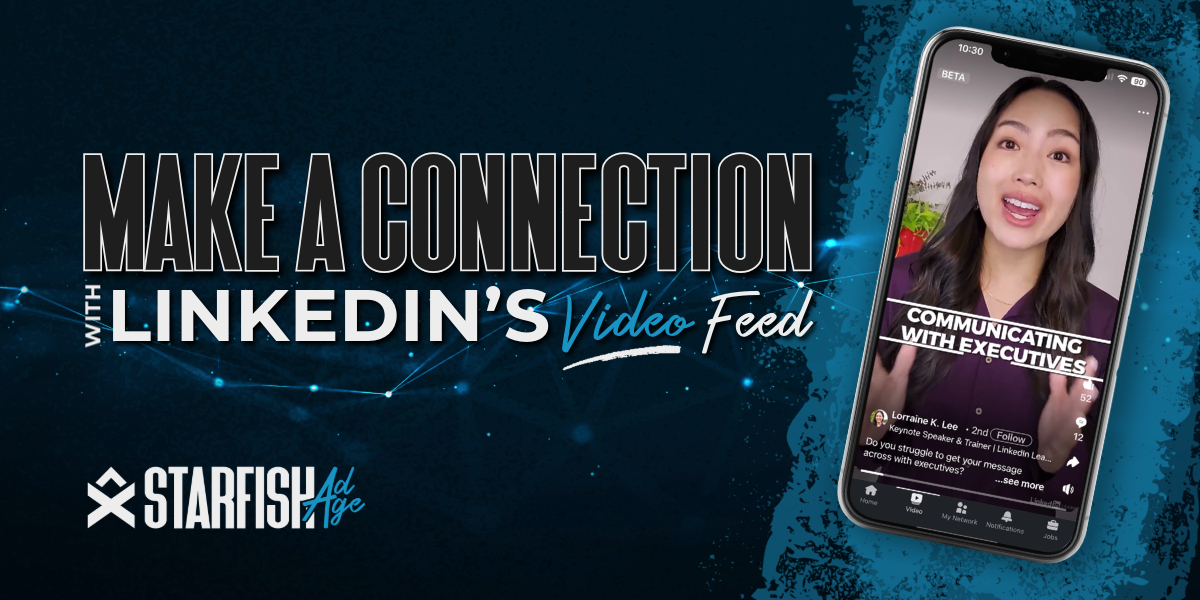
Use LinkedIn’s new video feed to grow your audience. Learn specs, best practices, and tips for creating engaging posts to boost your visibility on LinkedIn.

How major social media legal battles in 2024, including Supreme Court rulings and the Kids Online Safety Act, are impacting businesses and digital marketing.

Discover 10 iconic brands like Blockbuster, Kodak, and Toys “R” Us that went extinct because they failed to innovate.

Gen Z Marketing That’s Breaking The Internet: Discover how Gen Z marketers use bold, unpredictable strategies to capture attention.

Learn how AI tools improve customer experience, streamline operations, optimize marketing, and reduce operational costs.
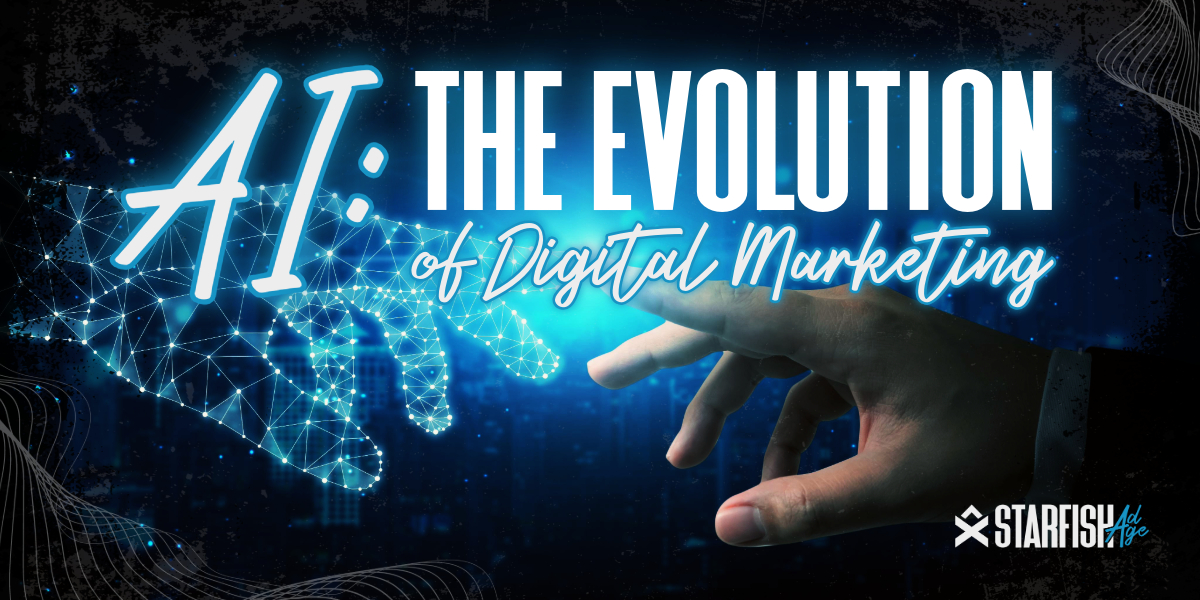
Discover how AI transforms digital marketing through automation, personalized strategies, and data-driven insights.
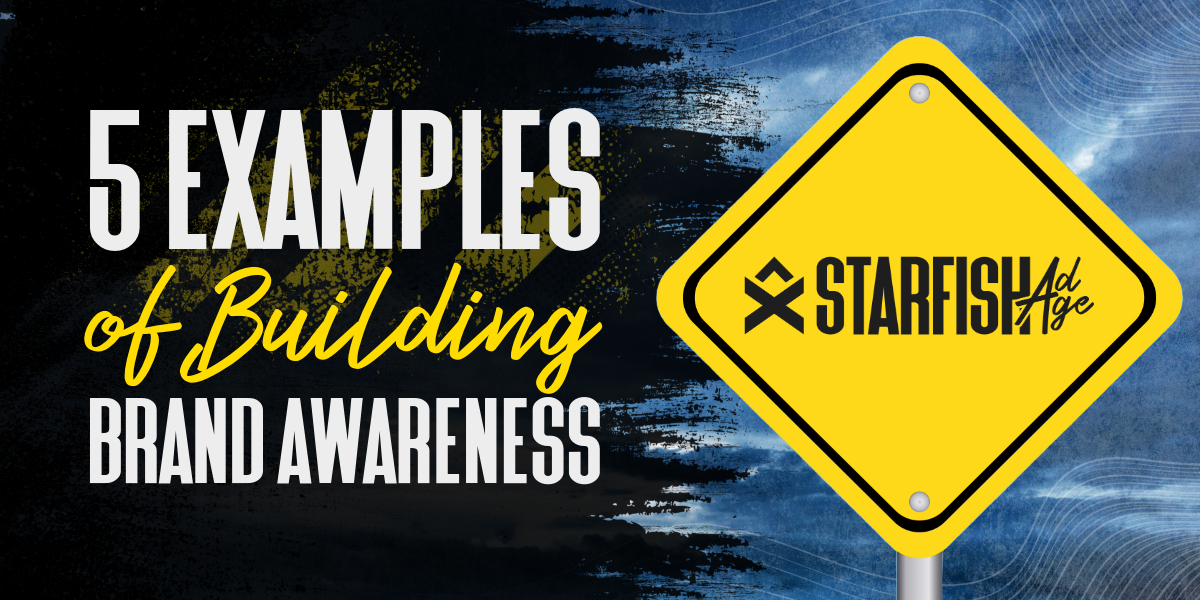
Discover five powerful strategies for building brand awareness, from partnerships and influencer marketing to social media and SEO.

Get the latest insights on Google’s ad tech monopoly trial and how it could reshape digital advertising, competition, and your ad strategies moving forward.

Follow TikTok’s legal battle against the ban and learn how it could affect creators. Get the facts and understand the potential future of the platform.

A few of the most significant marketing mistakes we’ve seen in 2024 so far, why they happen, and simple ways to avoid them to keep your campaigns on track.
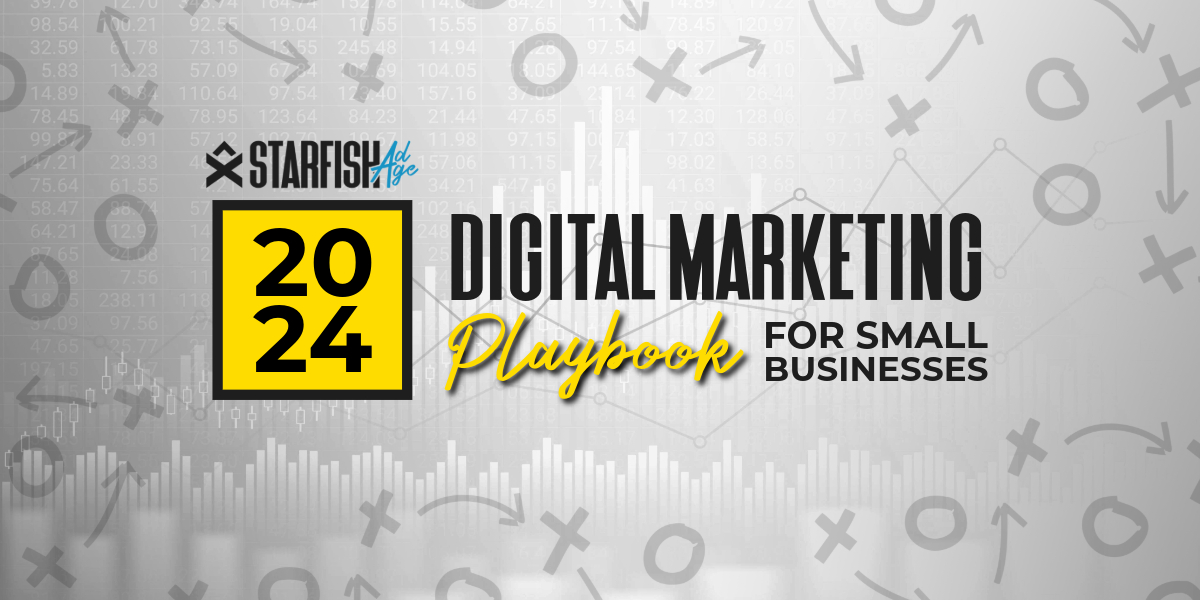
Explore key strategies in our 2024 Digital Marketing Guide. Learn to understand your audience, build an online presence, and optimize for business growth.
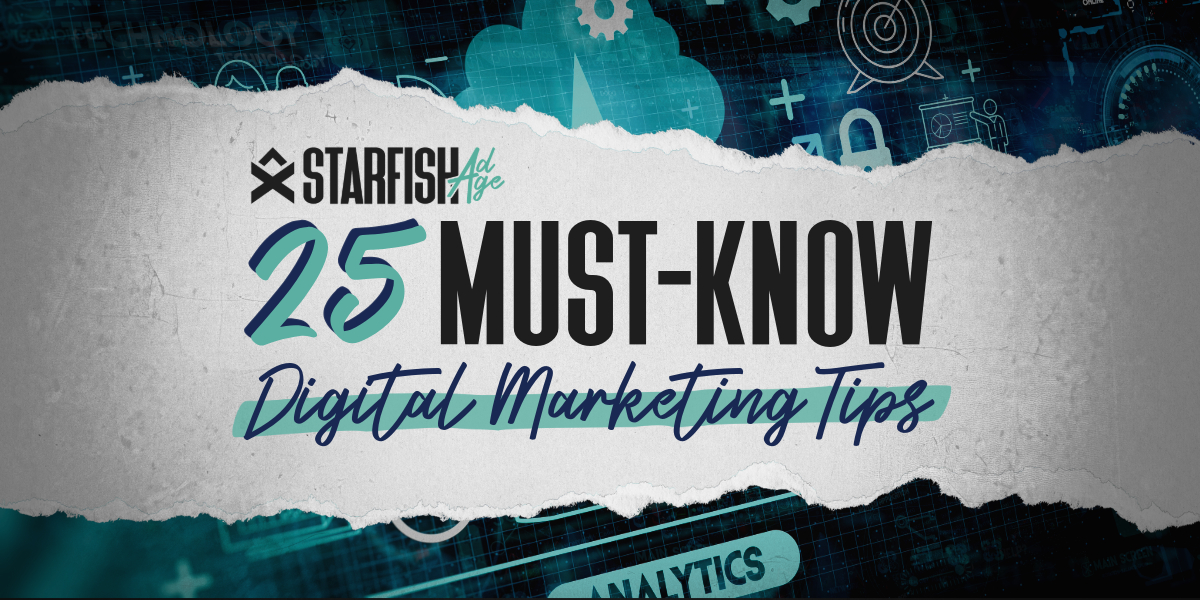
Discover 25 essential digital marketing tips for small businesses. Boost your online presence, attract customers, and drive sales with proven strategies.

14 Essential Digital Marketing Solutions to Boost Your Business Growth
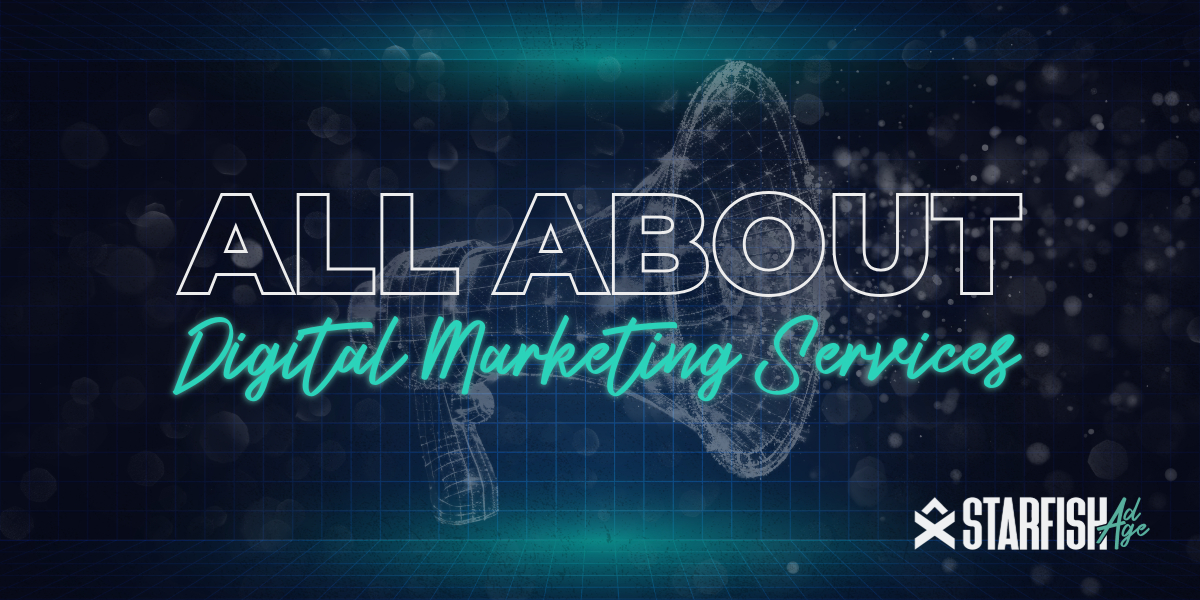
Learn about SEO, PPC, social media marketing, content marketing, and more to drive traffic and conversions. Read now!
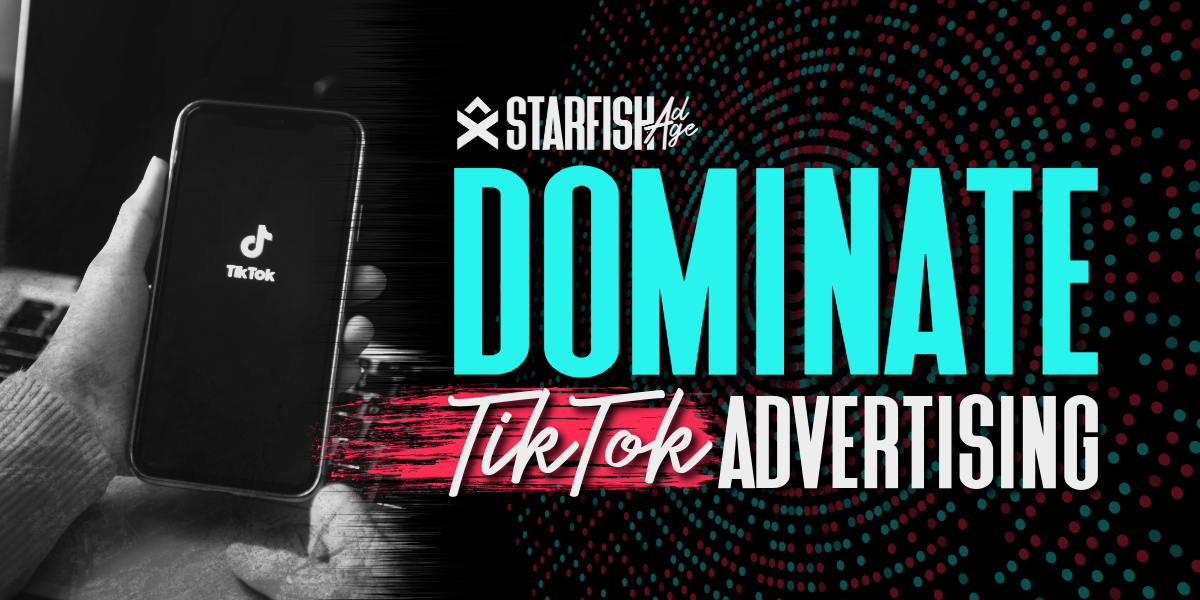
Learn how to leverage TikTok advertising, ad formats, targeting options, and best practices to increase brand awareness, and drive sales.

Learn about Connected TV (CTV) ads, their benefits, and how they work. Understand programmatic CTV advertising for effective digital marketing campaigns.
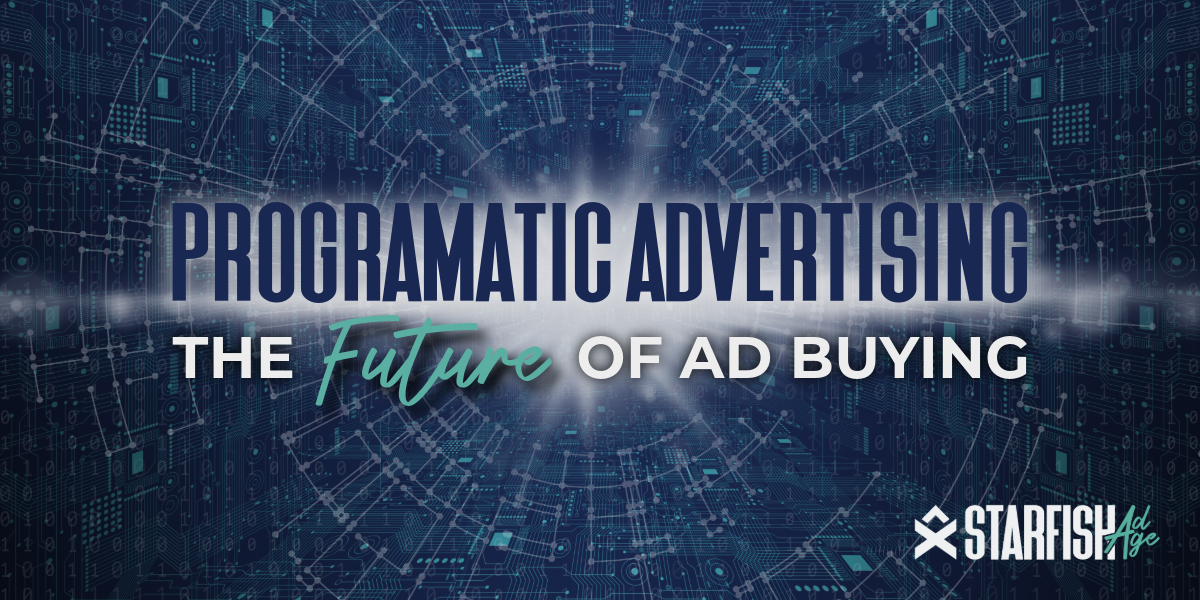
Discover the benefits of programmatic advertising, an automated method of buying digital ad space that enhances targeting, efficiency, and campaign performance.
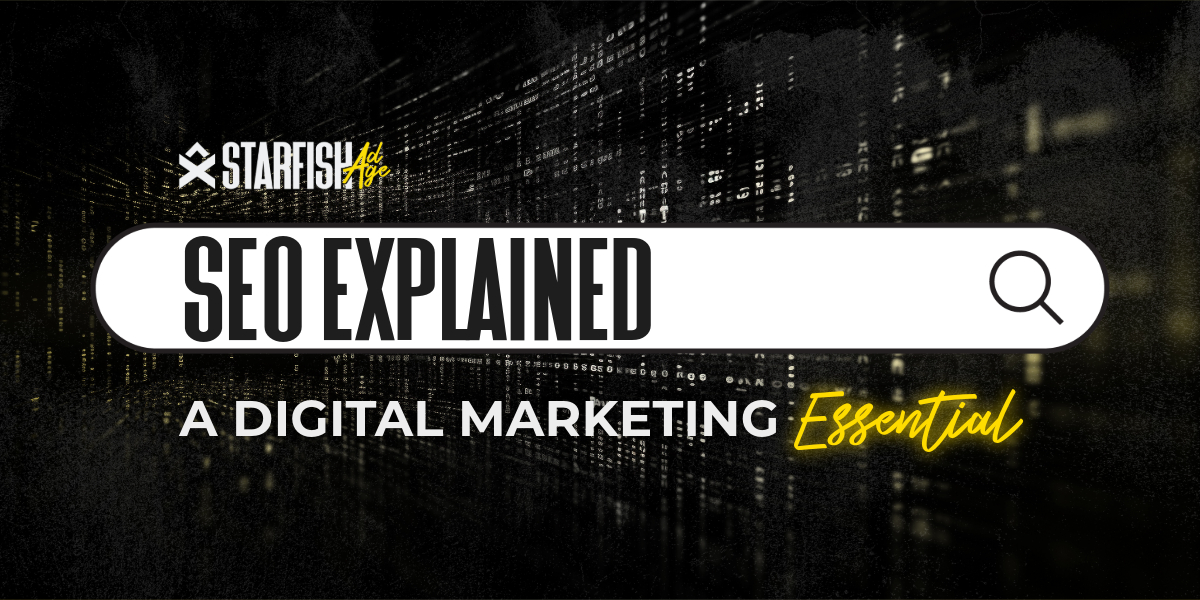
Discover what SEO in digital marketing is and why it matters. Learn how search engine optimization can increase your business’s success.

Learn how to advertise on Google effectively. The basics of Google Ads, from setting up your account to targeting your audience and driving qualified traffic.
All Rights Reserved | Starfish Ad Age LLC | 2023 | Privacy Policy